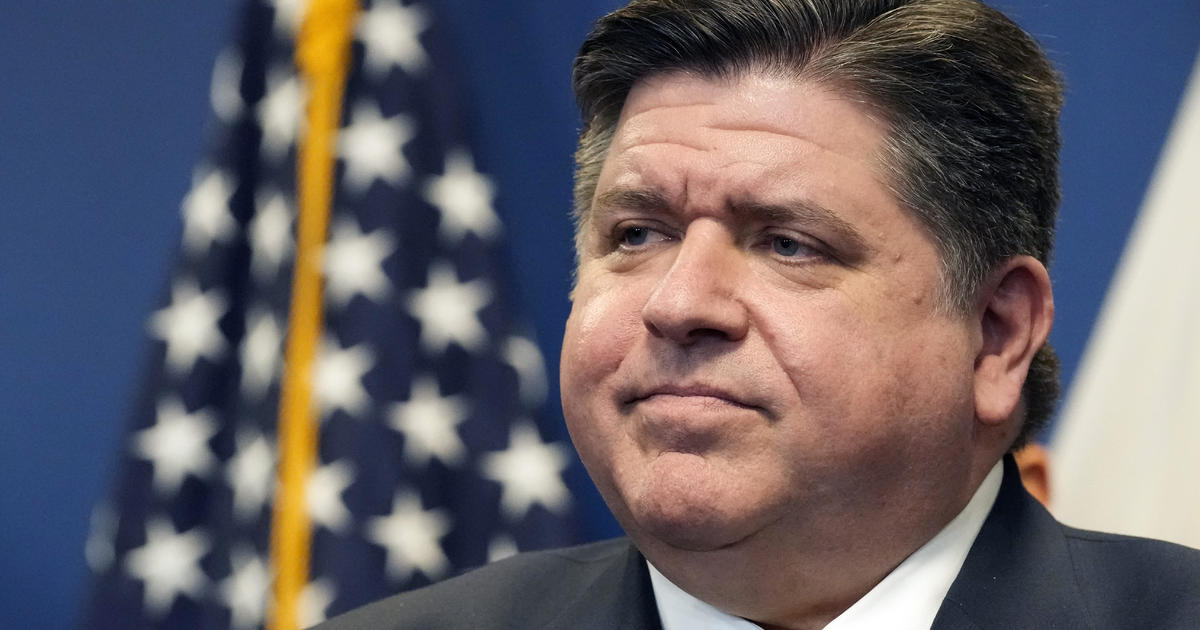State Senate Approves Civil Unions
SPRINGFIELD, Ill. (CBS) -- The Illinois Senate has approved legislation that would legalize civil unions for same-sex couples in Illinois, sending the proposal to Gov. Pat Quinn, who has lobbied in support of the measure.
The senate voted 32-24 Wednesday afternoon after nearly 90 minutes of impassioned debate.
LISTEN: Newsradio 780's Melissa Hahn Reports
Podcast
The measure, Senate Bill 1716, offers legal recognition to same-sex couples in Illinois. Civil unions would provide legal recognition of gay couples and give them some of the same benefits automatically available to married couples - the right to visit a sick partner in the hospital and make decisions about their medical care, for instance. Backers consider it a matter of fundamental fairness.
"They deserve the same rights and protections that we grant the citizens in the state of Illinois," said State Sen. David Koehler (D-Peoria), the Senate sponsor. "This is a secular way of legally providing protections and benefits across the board to all of our citizens."
State Sen. Dan Rutherford (R-Chenoa), who won the November election for Illinois State Treasurer, said he traveled all across the state during his campaign and he believes most Illinois residents support civil unions for same-sex couples.
State Sen. James Meeks (D-Chicago), a candidate for mayor of Chicago, voted against the proposal, although he did not speak on the Senate floor during the debate.
Meeks, pastor of the 20,000-member Salem Baptist Church on Chicago's South Side, said, "a bill this big and this much magnitude probably should have been placed on a ballot for a referendum."
But Meeks defended his no vote, adding, "I believe in the sanctity of marriage between a man and a woman and that was the impetus behind my vote."
Asked if his vote would hurt his chances in the race for mayor, Meeks said he didn't know, but said "I don't think that a person should vote on a bill of this magnitude based on the next office. I think they should base their vote on what they believe."
Rival mayoral candidate Rahm Emanuel issued a statement Wednesday afternoon, praising Koehler and Rep. Greg Harris (D-Chicago) -- the chief sponsor of the legislation and an openly gay member of the House -- for their work on the bill.
"This is a historic day for the great state of Illinois. Promoting equality for gay and lesbian Illinoisans is nothing more than a question of basic fairness," Emanuel said. "Illinois served as an example for states across the nation today."
See How Your Lawmaker Voted:
House Roll Call
Senate Roll Call
The legislation now goes to Gov. Pat Quinn for consideration. Quinn has said he plans to sign it.
"I think it's a proud day for the people of our state and the families of our state," Quinn said.
The national gay rights group the Human Rights Campaign urged Quinn to sign the bill quickly.
"HRC applauds the Illinois Senate for recognizing that our families need the security of legal recognition now by swiftly passing a civil unions bill," HRC President Joe Solmonese said in a news release quoted by the Windy City Times. "Thank you to all of the senators and representatives who took a stand for justice, and to the tireless advocacy of Equality Illinois and other organizations who made such a victory possible."
In a statement published on the Windy City Times website, the gay rights group Equality Illinois says if Quinn signs the bill, civil unions will be available in Illinois as of July 1 of next year.
As CBS 2's Dana Kozlov reports, Jim Darby and Patrick Bova have spent 47 years together and already have a domestic partnership certificate, but after almost a half a century as a couple, a piece of paper will soon make their partnership a legally-recognized one statewide.
"It's nice to be ... to have the same rights as everybody else in the country. It's nice not to have to hire a lawyer to do the things that we have done already," Darby said.
Darby and Bova were married by a minister at Metropolitan Community Church in Washington, D.C., 15 years ago. Even though the marriage isn't recognized under Illinois state law, once the civil union legislation takes effect, their relationship will provide them legal rights they haven't had before.
"We're not victimizing any religion. We have our own views on that and it has nothing to do with what we're talking about. We're talking about civil rights," Bova said.
Besides allowing gay partners to make medical decisions for one another and allow hospital visits, the bill will also give partners certain property and inheritance rights.
Bova and Darby said that, come next summer, they will proudly add that civil unions certificate to their files.
"I'm not going to wait all night like some of theses crazy people do for tickets and things, but we will go down there the very first day that it is available," Darby said.
Chicago's only openly gay alderman, Tom Tunney (44th) praised the General Assembly for passing the legislation.
"I think it sends a message that gays and lesbians are proud citizens of our city, state and, I know, our country," Tunney said.
LISTEN: Newsradio 780's Steve Miller Reports
Podcast
Ten states and the District of Columbia already let gay couples marry or form civil unions.
Supporters say civil unions would grant gay couples some of the same legal rights that come with marriage. Among those are the right to visit a sick partner in the hospital, make decisions about their medical care, and inherit property when a partner dies.
"The one thing that I do know about the people of Illinois is that they want fairness. The people of Illinois, they don't want discrimination," Rutherford said. "One thing that I do know, it's the right thing to do."
But opponents in the Senate said same-sex civil unions would be a threat to traditional marriage.
"The reason marriage exists is that sexual intercourse between men and women regularly produces children," State Sen. Chris Lauzen (R-Aurora) said. "I believe that we need to stop experimenting with traditional marriage."
Lauzen also accused supporters of the civil union proposal of having "grossly misplaced priorities" by calling the measure for a debate when the state is facing a $13 billion deficit, high unemployment rates and mounting public pension debts.
But Sen. Rickey Hendon (D-Chicago) criticized some opponents who cited religious and moral reasons for voting against the bill. Without naming anyone specifically, Hendon claimed some of those opponents are known to have committed adultery.
"It turns my stomach, the hypocrisy dripping in this chamber right now. We know what you do at night and you know too," Hendon said. "Why not call it like it is?" Just say you don't like certain folk."
Opponents also questioned what impact that legalizing civil unions would have on the costs of providing pensions for public employees.
"We cannot take one more drop of financial strain," State Sen. Dan Duffy (R-Lake Barrington) said. "How can I support it if we do not know how much money it will cost Illinois taxpayers or how we will pay for it?"
Approval came despite intense opposition from the Catholic church and Cardinal Francis George, who personally lobbied against the measure.
"Everyone has a right to marry, but no one has the right to change the nature of marriage. Marriage is what it is and always has been, no matter what a legislature decides to do; however, the public understanding of marriage will be negatively affected by passage of a bill that ignores the natural fact that sexual complementarity is at the core of marriage," Cardinal George said last month.
But supporters have said the proposal does not change the legal definition of marriage as being between a man and a woman, which currently is spelled out in Illinois state law.
The proposal explicitly states it is not intended to ''interfere with or regulate the religious practice of any religious body.'' Under the legislation, religious institutions would be ''free to choose whether or not to solemnize or officiate a civil union.''
And federal law wouldn't recognize the civil unions, meaning gay Illinois couples couldn't file joint tax returns.
Supporters also noted that the civil unions legislation would apply to more than just same-sex couples. It also would provide the same legal protections to widows and widowers who begin new committed relationships after their spouse's death, but who don't want to get married again.



